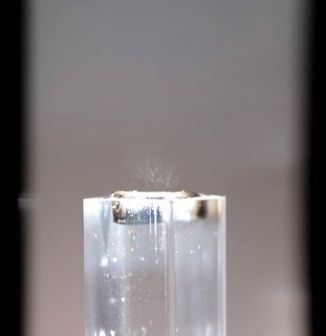According to the United Nations, 30,000 people die each week from the consumption and use of unsanitary water. Although the vast majority of these fatalities occur in developing nations, the U.S. is no stranger to unanticipated water shortages, especially after hurricanes, tropical storms and other natural disasters that can disrupt supplies without warning.
Led by Guihua Yu, associate professor of materials science and mechanical engineering at The University of Texas at Austin, a research team in UT Austin’s Cockrell School of Engineering has developed a cost-effective and compact technology using combined gel-polymer hybrid materials. Possessing both hydrophilic (attraction to water) qualities and semiconducting (solar-adsorbing) properties, these “hydrogels” (networks of polymer chains known for their high water absorbency) enable the production of clean, safe drinking water from any source, whether it’s from the oceans or contaminated supplies.
The findings were published in the most recent issue of the journal Nature Nanotechnology.
